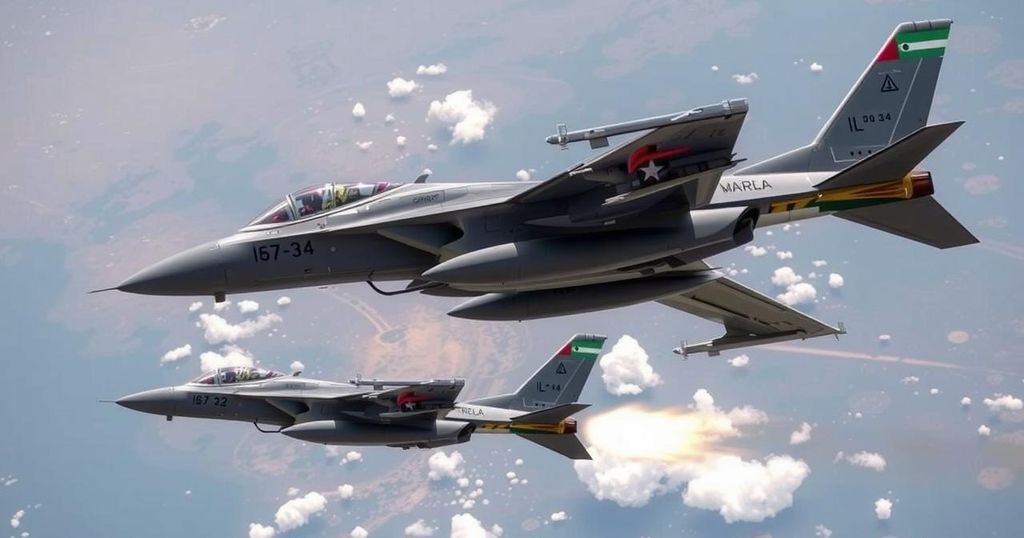US Air Strike in Somalia Eliminates 10 Al-Shabaab Fighters

The United States conducted a successful air strike in Somalia on December 31, killing 10 Al-Shabaab militants at the request of the Somali government. This operation reflects the ongoing conflict against insurgent groups in the region, where Al-Shabaab has maintained a decades-long insurgency, posing a serious threat to national stability. The United States remains committed to supporting Somalia’s efforts against extremism.
On December 31, the United States military executed an air strike in southern Somalia, resulting in the death of 10 members of the Al-Shabaab jihadist organization, according to an announcement made by US military authorities. This operation occurred approximately 35 kilometers from Kismayo town in Beer Xaani, and was initiated at the request of the Somali government. The United States Africa Command (AFRICOM) reported that initial assessments indicated the strike did not harm any civilians, emphasizing a commitment to minimizing collateral damage in such operations.
This air strike comes in the wake of a recent assault by the Islamic State group, located to the north of the country, which was successfully countered by Somali government forces. The ongoing violent insurgency by Al-Shabaab has persisted for over 17 years, posing a significant threat to the stability of Somalia’s fragile federal government, particularly through repeated attacks in the capital, Mogadishu.
AFRICOM reiterated its ongoing evaluations of the impact of the air strike and assured that further information would be disseminated as necessary. The United States has a longstanding history of involvement in Somalia, reflected in its substantial investments in counterterrorism efforts aimed at addressing the enduring challenges posed by armed militant groups in the region. Notably, the strategic decisions surrounding troop presence in Somalia have fluctuated with presidential administrations, impacting the overall efficacy of military operations against insurgents.
Somalia continues to grapple with severe hardships, including persistent civil strife, substantial poverty, and frequent climate-related disasters, compounded by the threat from jihadist extremism. These challenges necessitate ongoing international support and collaborative efforts to stabilize the region and promote sustainable peace.
The Al-Shabaab group, affiliated with Al-Qaeda, has been involved in violent insurgency activities against the Somali government for more than 17 years. Their ongoing conflict has created a challenging security environment within Somalia, particularly affecting major urban centers such as Mogadishu. Al-Shabaab is known for executing numerous attacks targeting government forces and civilians, which has exacerbated the country’s already precarious socio-economic situation. The United States has actively engaged in supporting counterterrorism efforts in Somalia, reflecting a long-standing commitment to combating extremism in the region. Since the withdrawal of US troops proposed during President Trump’s administration and the subsequent policy changes under President Biden, the US has utilized air strikes as a primary means of addressing these threats while supporting Somali government forces in their fight against jihadist groups. Somalia remains one of the poorest countries in the world, enduring ongoing humanitarian crises alongside the threat of jihadist violence, necessitating a multifaceted approach to achieve lasting stability.
In conclusion, the recent US air strike on December 31 in southern Somalia, which resulted in the deaths of 10 Al-Shabaab fighters, underscores the ongoing conflict in the region and the international efforts to counteract extremism. While the Somali government seeks to maintain control and legitimacy, these military operations reflect a sustained commitment from the United States to support local forces against violent insurgencies. As Somalia continues to face significant socio-economic challenges, international cooperation remains vital in achieving comprehensive stability and peace.
Original Source: www.barrons.com








